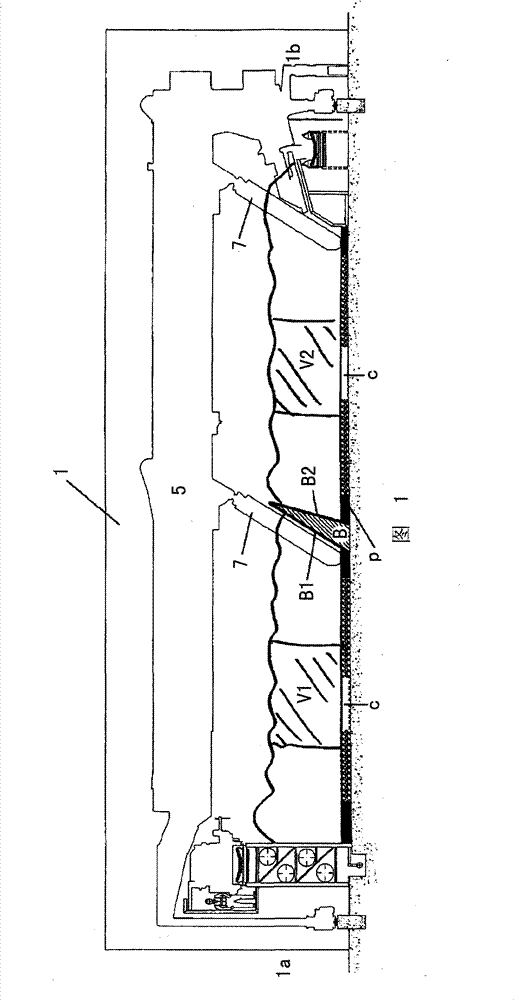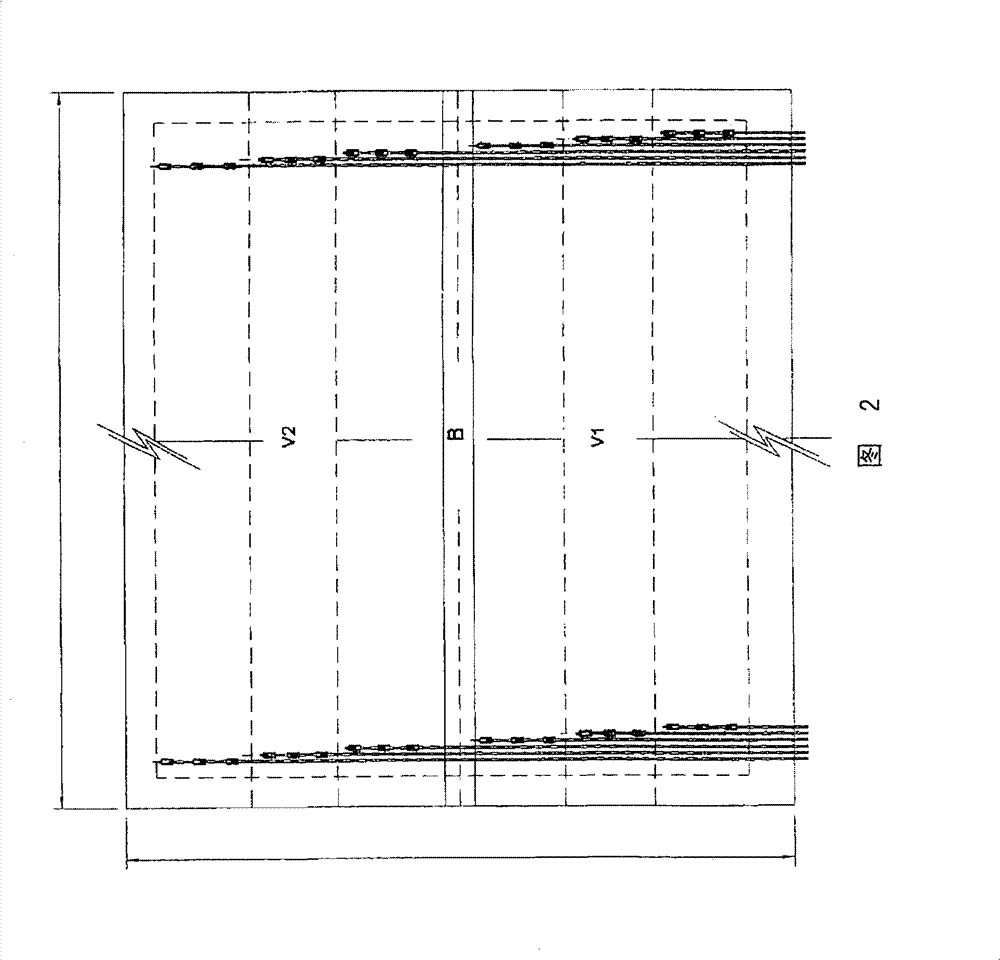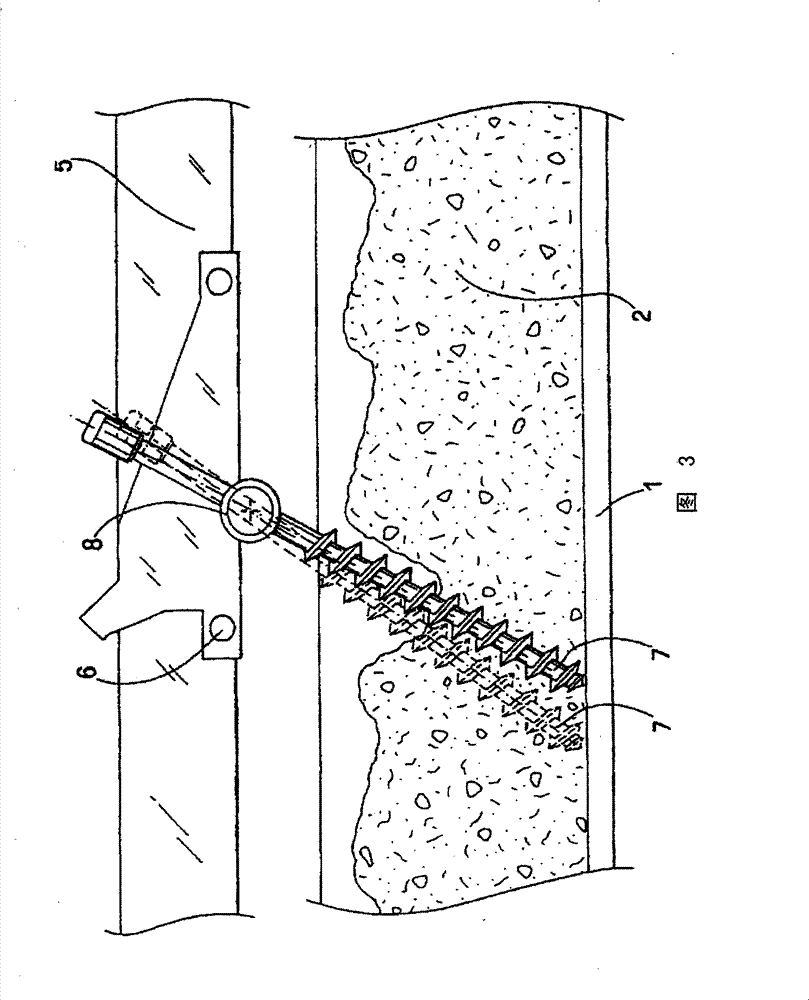Biological waste treatment plant
A biological treatment and treatment tank technology, which is applied in the treatment of biological organic parts, chemical/physical processes, educts, etc., can solve the problems of the screw propeller's rise, correction, and difficulty in temperature control, and achieve the effect of reducing air volume.
- Summary
- Abstract
- Description
- Claims
- Application Information
AI Technical Summary
Problems solved by technology
Method used
Image
Examples
Embodiment Construction
[0038] Referring now to the drawings, and in particular to FIG. 1 , organic matter 2 (not shown in FIG. 1 ) is fed into the treatment tank 1 by means of a conveyor belt or similar, preferably in a continuous manner. Above the treatment tank 1 is a bridge 5 along which two or more trolley wheels run, on which a set of one or more screw pushers 7 are mounted, characterized in that: (i) they wind around themselves axis of rotation, and are carried by the bridge 5 to move from the end of the treatment tank 1 to the opposite end; (ii) they move along the bridge 5 across the treatment tank 1 from one end to the opposite end; (iii) they can pass around their The axis of rotation 8 (not shown in FIG. 1 ) rotates overturning so that they can be extracted from the organic matter when required.
[0039] Fig. 3 shows the preferred embodiment of the working position of the screw propeller 7, although they all sweep the bottom of the treatment tank, they all have separate end parts, so as t...
PUM
 Login to View More
Login to View More Abstract
Description
Claims
Application Information
 Login to View More
Login to View More - Generate Ideas
- Intellectual Property
- Life Sciences
- Materials
- Tech Scout
- Unparalleled Data Quality
- Higher Quality Content
- 60% Fewer Hallucinations
Browse by: Latest US Patents, China's latest patents, Technical Efficacy Thesaurus, Application Domain, Technology Topic, Popular Technical Reports.
© 2025 PatSnap. All rights reserved.Legal|Privacy policy|Modern Slavery Act Transparency Statement|Sitemap|About US| Contact US: help@patsnap.com



